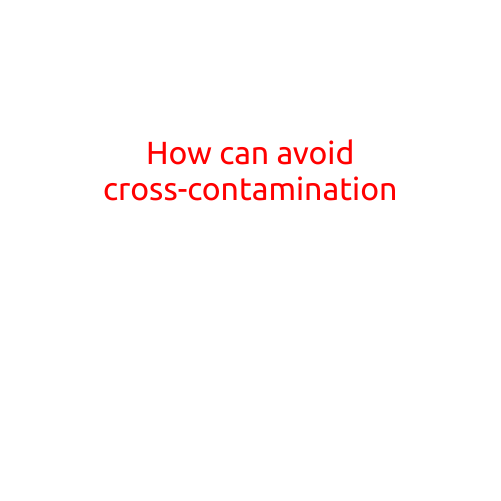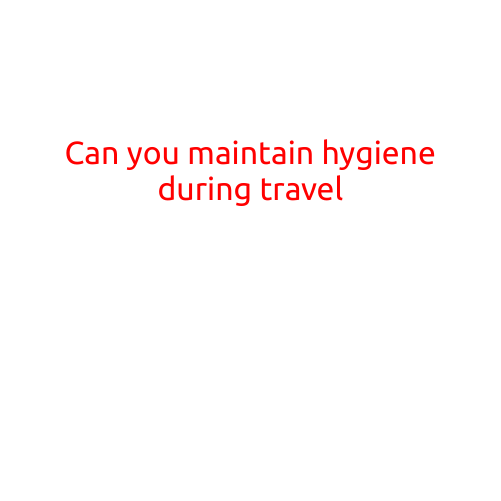
How to Avoid Cross-Contamination
Cross-contamination is a common issue in various industries, including food service, healthcare, and manufacturing. It occurs when an object, substance, or person inadvertently comes into contact with another object, substance, or person, potentially spreading contaminants or allergens. In this article, we will discuss the importance of avoiding cross-contamination and provide practical tips on how to do so.
Why is Cross-Contamination Important?
Cross-contamination can have severe consequences in various industries. In food service, for example, cross-contamination can lead to foodborne illnesses, which can be life-threatening. In healthcare, cross-contamination of medical equipment and surfaces can spread diseases and infections. In manufacturing, cross-contamination of products can lead to spoilage, contamination, or even product recalls.
Practical Tips to Avoid Cross-Contamination
- Implement Good Hygiene Practices
Practice good hygiene by washing your hands regularly, especially after using the restroom, before and after handling food, and after blowing your nose, coughing or sneezing.
- Use Personal Protective Equipment
Wear personal protective equipment (PPE) such as gloves, gowns, and masks when handling products, food, or medical equipment to prevent direct contact.
- Clean and Disinfect Regularly
Regularly clean and disinfect surfaces, equipment, and utensils to prevent the buildup of bacteria, viruses, and allergens. Use a disinfectant solution and follow the manufacturer’s instructions.
- Store Products Properly
Store products, including food and medical supplies, in a clean and organized manner to prevent cross-contamination.
- Use Single-Use Items
Use single-use items such as gloves, utensils, and countertops to minimize the risk of cross-contamination.
- Implement a Cleaning Schedule
Establish a cleaning schedule to ensure that all areas and equipment are regularly cleaned and disinfected.
- Train Staff
Train staff on good hygiene practices, cross-contamination prevention, and the importance of cleaning and disinfecting regularly.
- Use Automated Systems
Use automated systems such as dishwashers and floor cleaning machines to reduce manual handling and the risk of cross-contamination.
- Use Separate Storage Spaces
Use separate storage spaces for raw and cooked products to prevent cross-contamination.
- Conduct Regular Audits
Conduct regular audits to identify areas for improvement and ensure that cross-contamination prevention measures are effective.
Conclusion
Cross-contamination is a serious issue that can have significant consequences in various industries. By implementing good hygiene practices, using personal protective equipment, cleaning and disinfecting regularly, and following other practical tips, you can minimize the risk of cross-contamination and ensure a safe and healthy environment for customers, patients, and employees. Remember to always prioritize cleanliness, organization, and training to avoid cross-contamination and maintain a high level of quality and safety.





